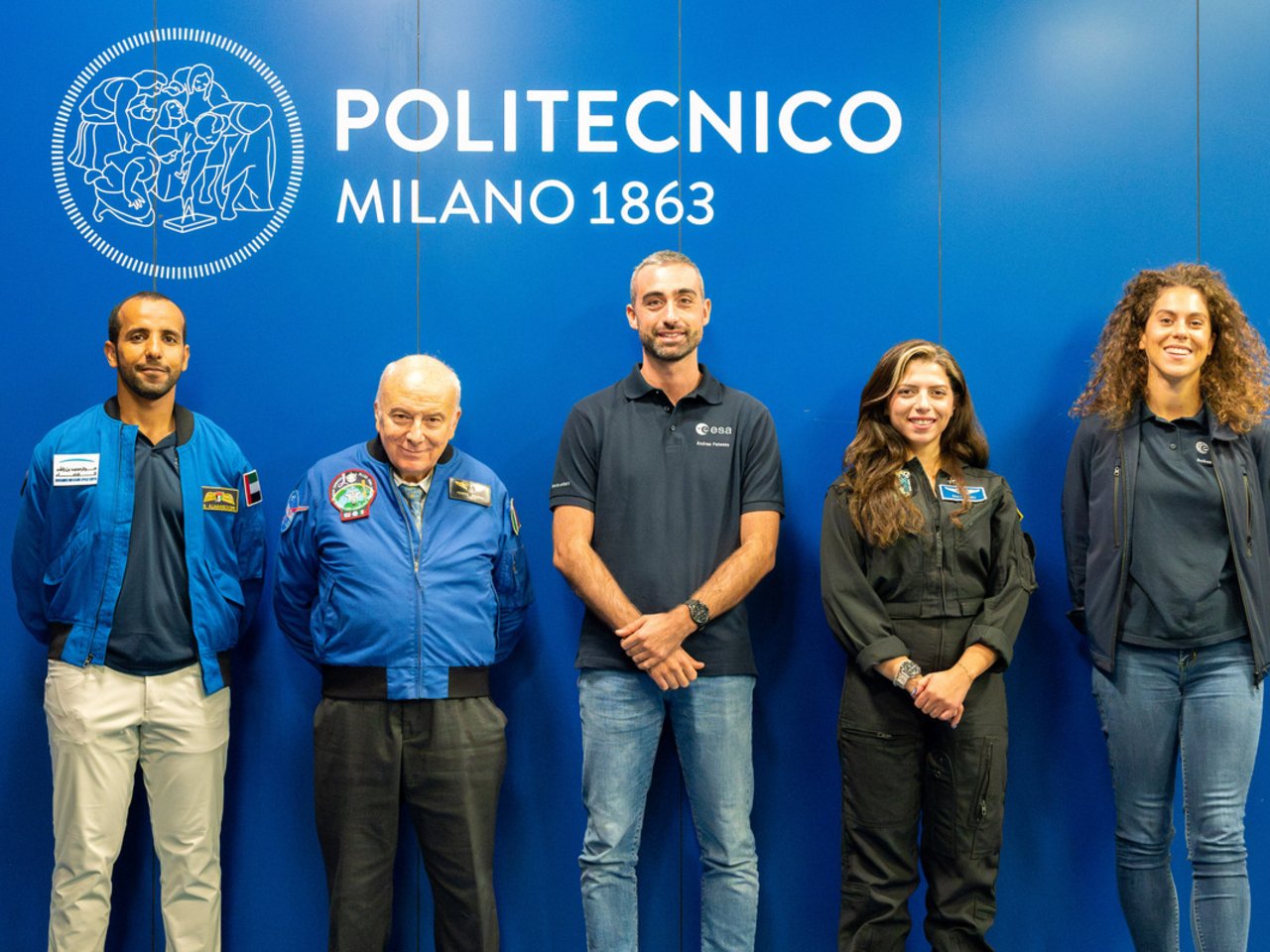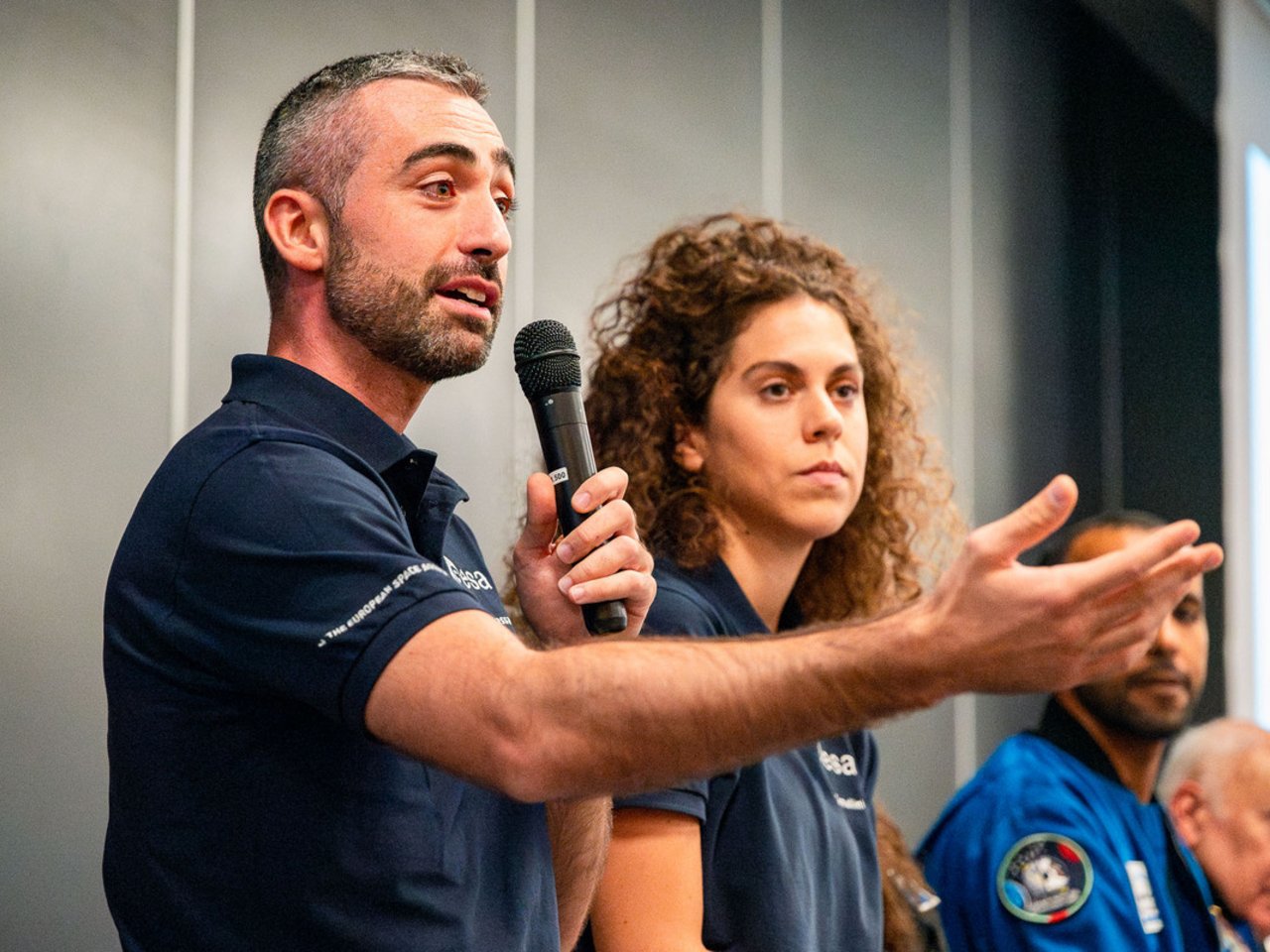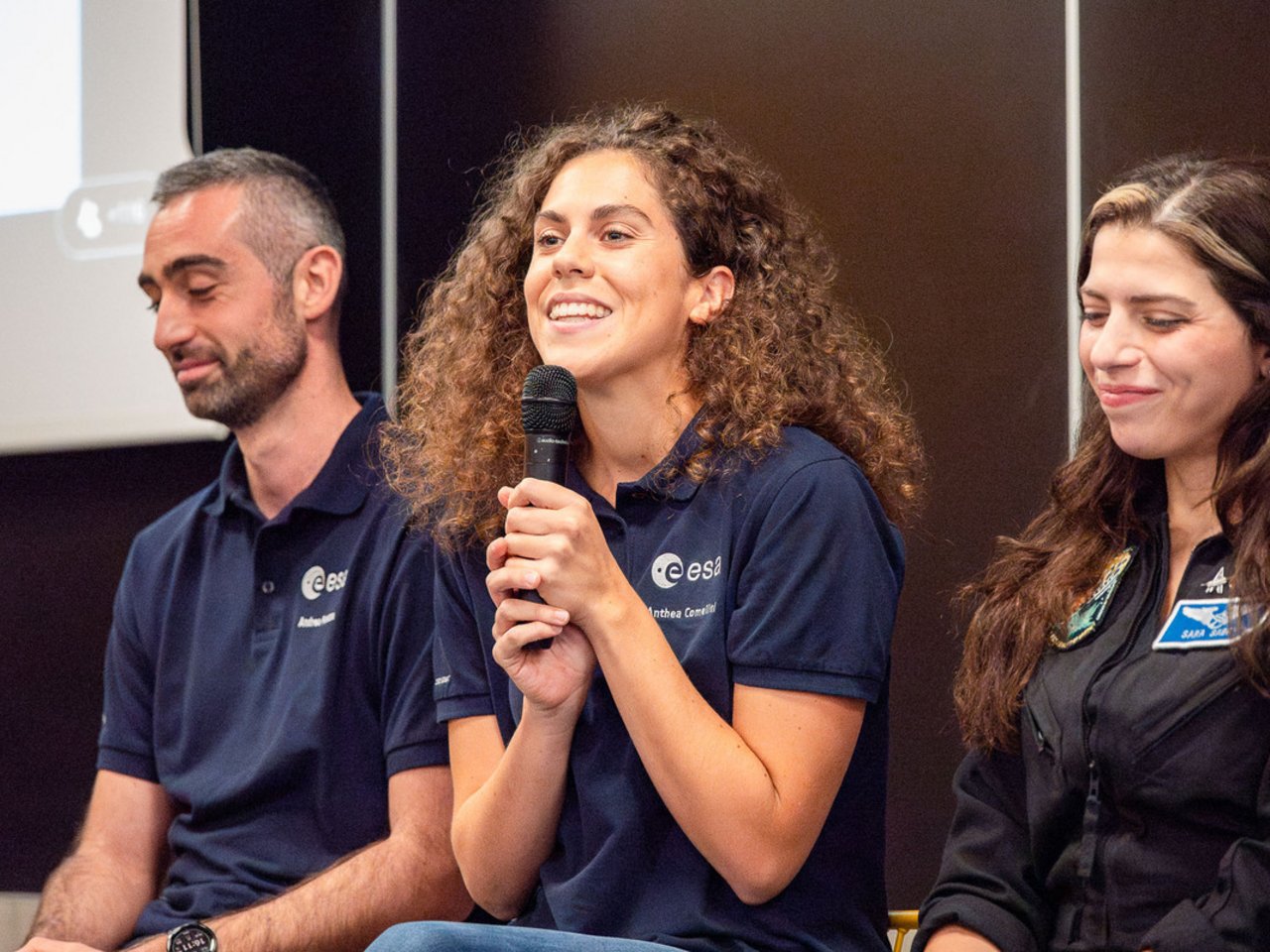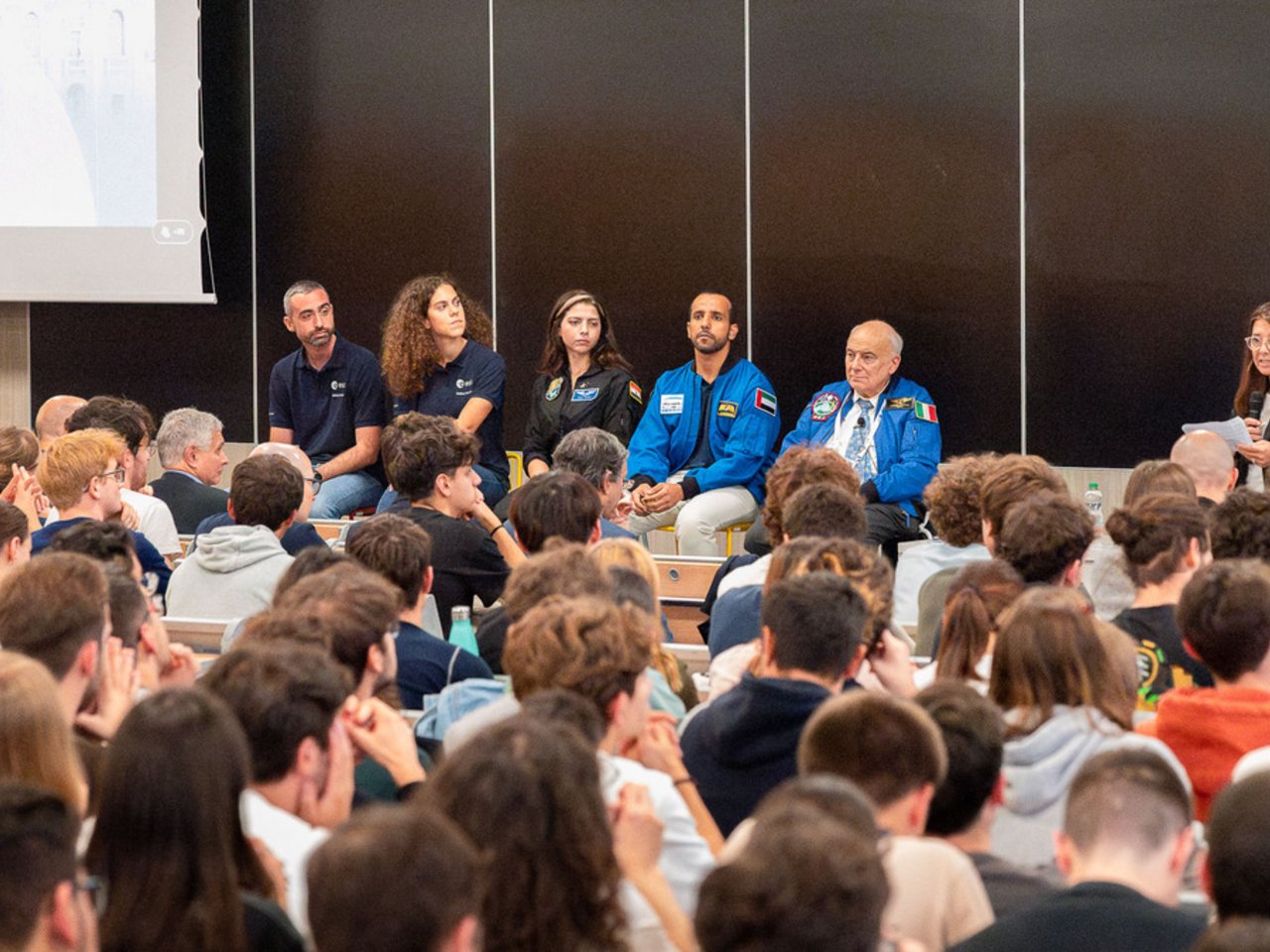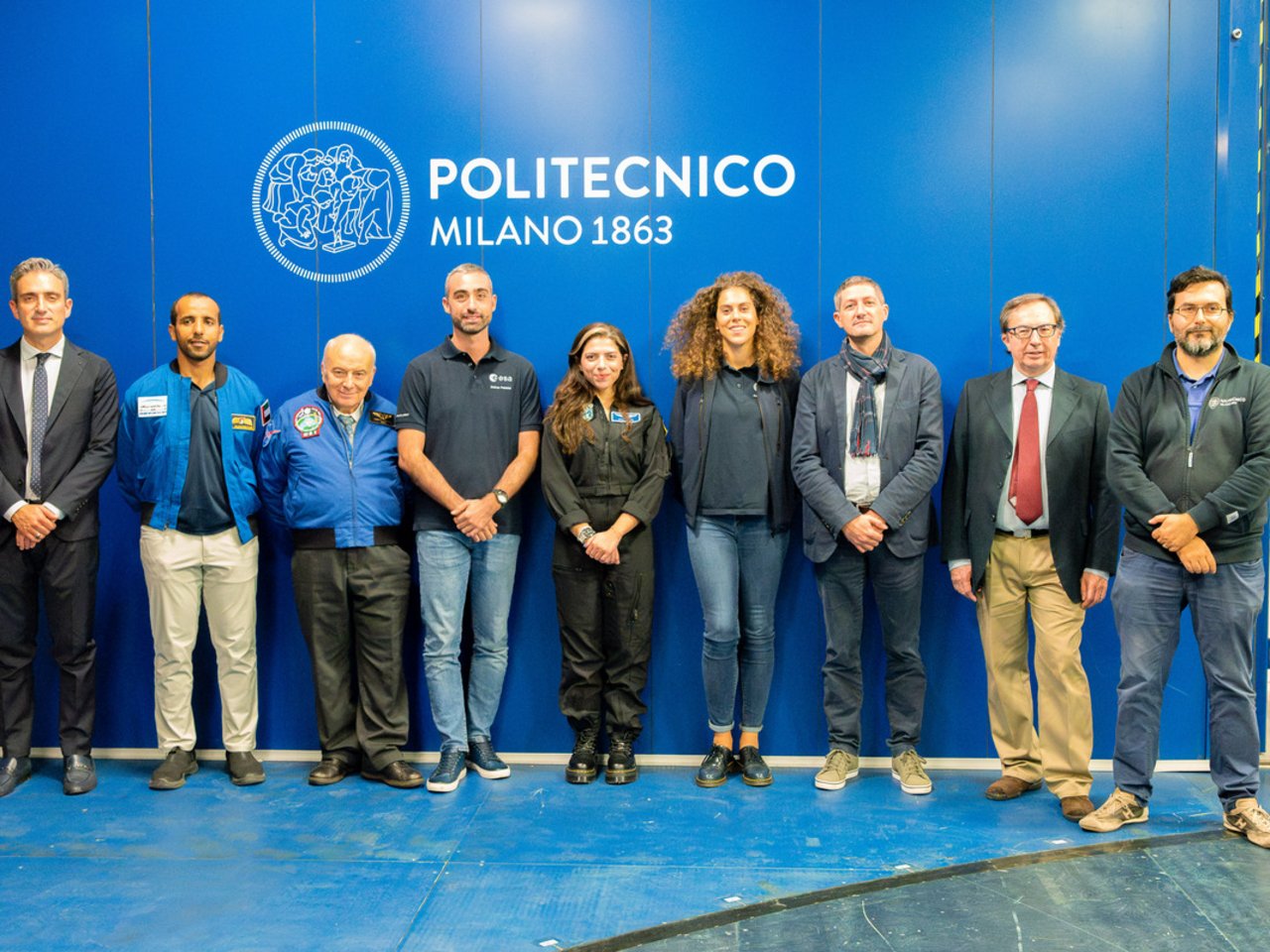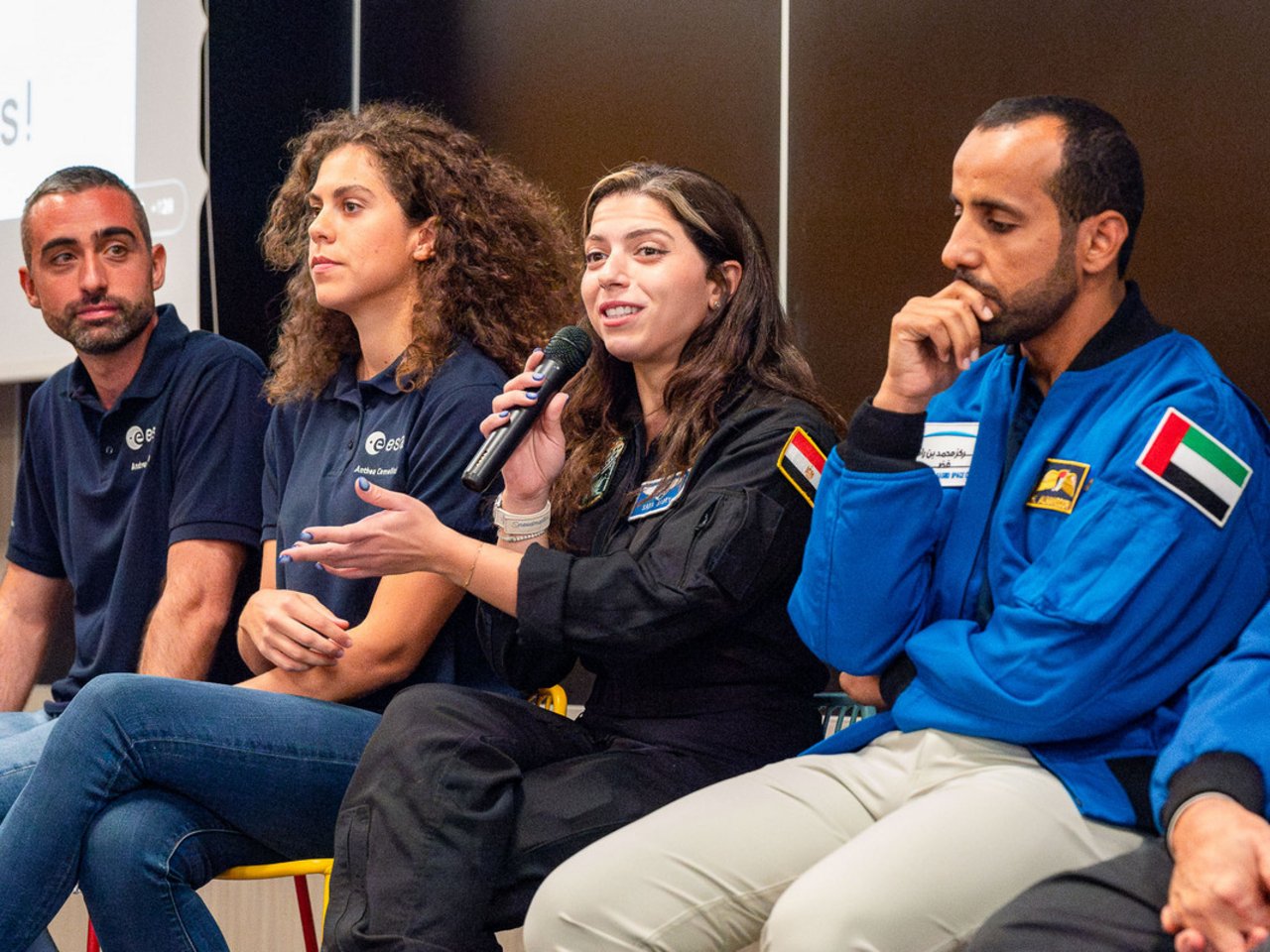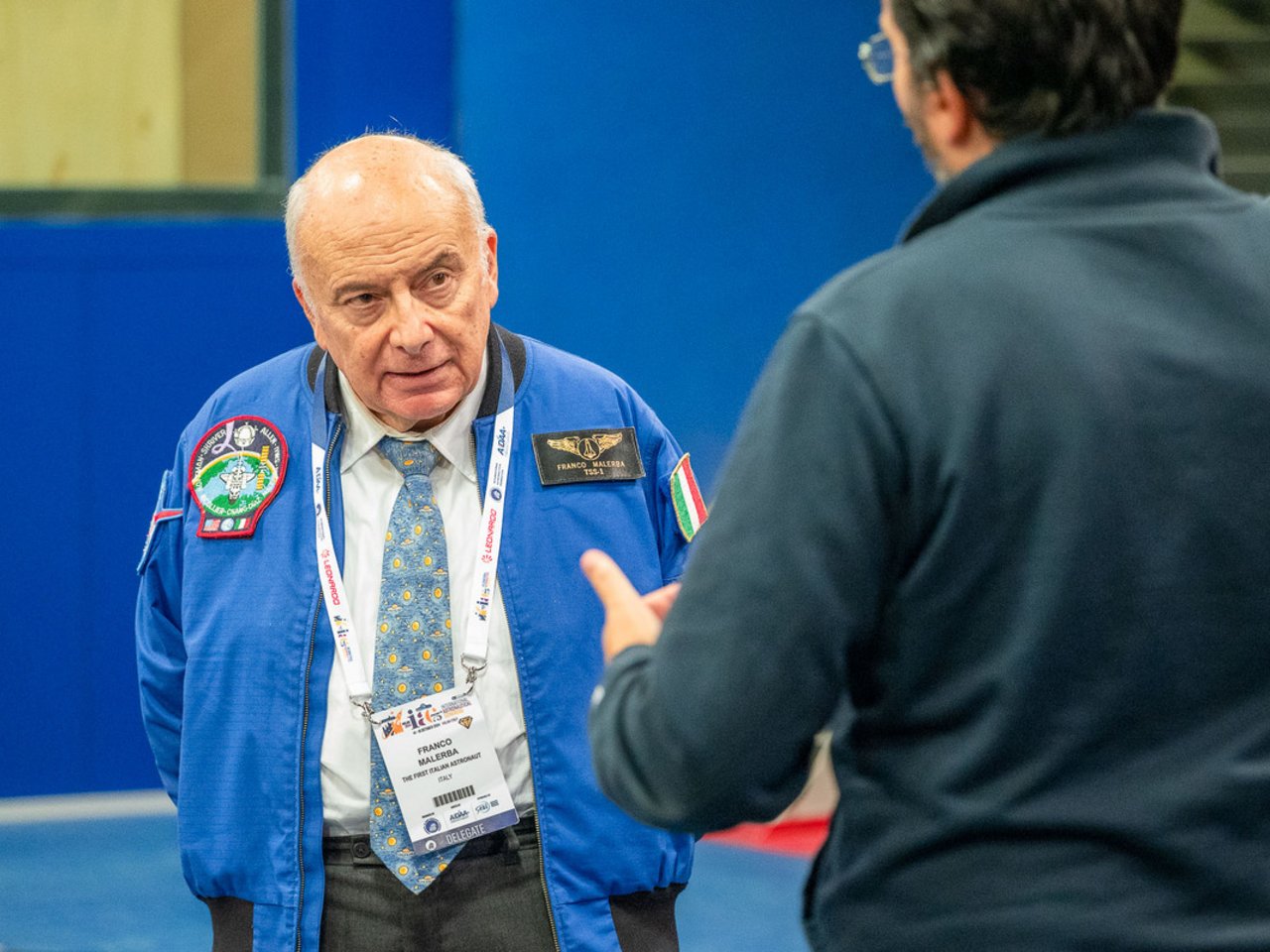Politecnico meets the austronauts
On the occasion of the 75th International Astronautical Congress (IAC) in Milan, Politecnico di Milano hosted five astronauts from the International Astronauts Chapter, jointly organized by the International Astronautical Federation (IAF), the Association of Space Explorers (ASE), and the Italian Space Agency (ASI).
Franco Malerba, Andrea Patassa, Anthea Comellini, Hazzaa Ali AlMansoori e Sara Sabry visited the wind tunnel at Politecnico di Milano before meeting with space enthusiasts for an extraordinary event attended by approximately 700 people in person and over 120 online.
The event was moderated by Isabella Nova, Executive Vice Rector, Marco Lovera, Head of the Department of Aerospace Science and Technology, and Franco Bernelli Zazzera, Rector's Delegate for International Relations of the School of Industrial and Information Engineering.
Students had the opportunity to ask direct questions to the astronauts, receiving valuable insights on topics ranging from the growth of the space economy to the physical and mental challenges of life in orbit.
The space economy is rapidly expanding, and the astronauts emphasized that the growth of the sector is driven by highly skilled professionals such as engineers and technicians. Universities play a crucial role in preparing future talents, and the astronauts stressed the importance for students to take advantage of their education to discover their passions.
Curious about the challenges of spaceflight, students asked about the most difficult aspects of astronaut training. Surprisingly, the astronauts noted that the mental preparation proved to be more demanding than the physical, particularly due to the complexity of the missions and the need to adapt to various roles in an international environment. Beyond technical skills, the astronauts highlighted the importance of teamwork and stress management. Communicating scientific discoveries to the public is another crucial aspect, essential for sharing the benefits of space missions with humanity.
Although we speak different languages and come from different countries, we always feel like a family on the station. Each of us takes care of the others and everyone takes care of everyone else. You are not there to represent yourself, your country or maybe your region or your agency, you are there to represent humanity as a whole. If you have that mindset, it's gonna make a change.
The astronauts also described the numerous technologies currently being tested and used in orbit. Among the most remarkable technologies in use on the International Space Station are the bioprinting of human tissues, advanced robotic systems, and ongoing research to develop advanced spacesuits that will assist astronauts in their daily activities on the ISS and upcoming missions beyond Earth's orbit.
A key takeaway from the event was the importance of collaboration among astronauts from different nations. Operating as a global family is essential for the success of missions, enhancing creativity and problem-solving in a multicultural context.

